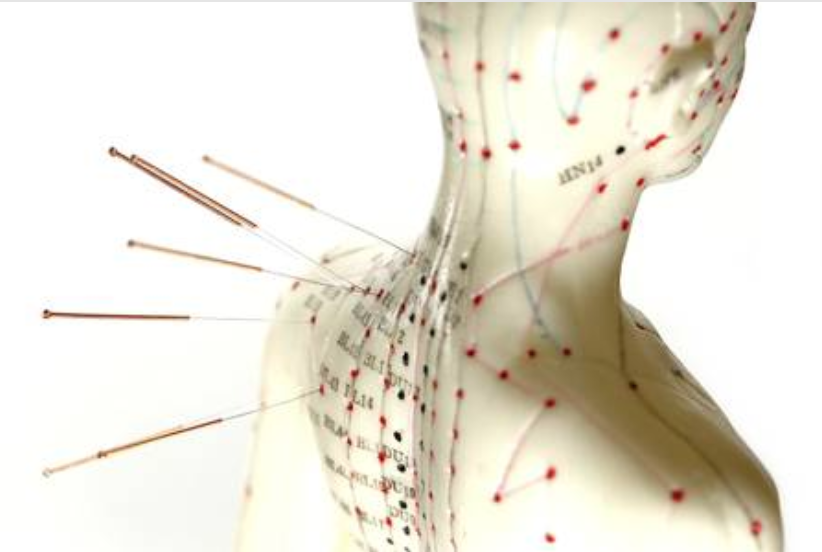Acupuncture
What is acupuncture?
Acupuncture is a treatment method of traditional eastern medicine practice. It is recognised as safe and beneficial for many conditions. Acupuncture is a natural way of healing yourself and maintaining your body health without adding a chemical from outside.
It involves the insertion of very thin needles at strategic points on your body. By doing so, it stimulates nerve-rich areas of the skin surface in order to influence tissues, glands, organs and various functions of the body.
How does acupuncture work?
The philosophy of acupuncture is a bit more complicated. The human body is filled with and animated by an invisible life-giving force (氣:기, Chi, Qi).
The energy needs to circulate freely within the body to carry out all its functions. if the circulation becomes interrupted, the body loses its homeostasis and becomes dis-eased.
Through acupuncture, the energy flow of the body can manipulate to achieve a balance of the body in order to fix a problem.
If you're new to holistic healing as a type of treatment, acupuncture can seem a bit terrifying. It is definitely not the overtly painful procedure you may be imaging. The needle sensation is most likely a mosquito bite at the insertion site.
What is difference between acupuncture and dry needling?
There are so many ways of doing acupuncture. The concept may be similar, but the effect can be different according to the method of acupuncture. However, dry needling is a small part of acupuncture and it has been developed by western physician who got the idea from acupuncture. Dry needling targets trigger points in the muscle area to relieve muscle stiffness and pain only. It is the similar concept of Ashi point (Pain point) in acupuncture.
Currently the dry needling can be done by practitioner - Myotherapist, physiotherapist, osteopathy, chiropractor, remedial massage therapist - who get dry needling course which is generally short course consisting of 2 days seminar to a few weeks training.
However, acupuncture is 4 to 5 years bachelor course and it has been used for all sorts of issues in the body including pain in the body, headache, digestive issues, mental issues, stress management, IVF support, even common cold. Acupuncture is used based on the concept of Energy(氣:기, Chi, Qi) movement.
Is acupuncture effective?
As an acupuncturist, acupuncture is very effective. However, in general, acupuncture is well know for relieving common types of pain including neck, shoulder, headaches, migraines, and fibromyalgia.
Acupuncture may help relieving all sort of body issues such as chronic fatigue, indigestions, IBS, insomnia, menstruation issues, helping pregnancy such as IVF support, etc. It has been used as main stream treatment in Asia more than 3000 years. Currently, acupuncture is very actively used as one of main stream treatment in East Asia - China, Japan, Korea, Malaysia, Taiwan, Vietnam.
According to acupuncture evidence project, it says the following issues are effective.
- Allergic rhinitis (perennial & seasonal)
- Knee osteoarthritis
- Chemotherapy-induced nausea and vomiting (with
anti-emetics) - Migraine prevention
- Chronic low back pain
- Postoperative nausea & vomiting
- Headache (tension-type and chronic)
- Postoperative pain
- Acute low back pain
- Modulating sensory perception thresholds
- Acute stroke
- Neck pain
- Ambulatory anaesthesia
- Obesity
- Anxiety
- Perimenopausal & postmenopausal insomnia
- Aromatase-inhibitor-induced arthralgia
- Plantar heel pain
- Asthma in adults
- Post-stroke insomnia
- Back or pelvic pain during pregnancy
- Post-stroke shoulder pain
- Cancer pain
- Post-stroke spasticity
- Cancer-related fatigue
- Post-traumatic stress disorder
- Constipation
- Prostatitis pain/chronic pelvic pain syndrome
- Craniotomy anaesthesia
- Recovery after colorectal cancer resection
- Depression (with antidepressants)
- Restless leg syndrome
- Dry eye
- Schizophrenia (with antipsychotics)
- Hypertension (with medication)
- Sciatica
- Insomnia
- Shoulder impingement syndrome (early stage) (with exercise)
- Irritable bowel syndrome
- Shoulder pain
- Labour pain
- Smoking cessation (up to 3 months)
- Lateral elbow pain
- Stroke rehabilitation
- Menopausal hot flushes
- Temporomandibular pain
Source : https://www.acupuncture.org.au/resources/publications/the-acupuncture-evidence-project
Is acupuncture safe?
In general, acupuncture is safe when done by a registered practitioner.
Acupuncture may cause side effects such as bruising in the puncture sites, punctures of organs. It may also causes infection at puncture sites but it rarely happens if it is done in the proper acupuncture clinic.
Acupuncture needles are all sterilized and disposable
What happens during acupuncture treatment?
First, consultation begins with discussion of your problem and some examination such as pulse taking, tongue watching, and other physical examination. Then acupuncturist stimulate acupuncture points according to the diagnosis by inserting needles. The process doesn't usually make much pain, but it may cause some pricking sensation, aching and tingling, sore sensation.
Should I talk to my doctor?
It is a good idea talking to your GP and discussing about having acupuncture. However, you are not required to get referral from your GP.
If you have any blood-borne diseases such as Hep-C, HIV/AIDS. You would better to discuss the risk of transmission with your doctor and acupuncturist before undergoing the treatment.
